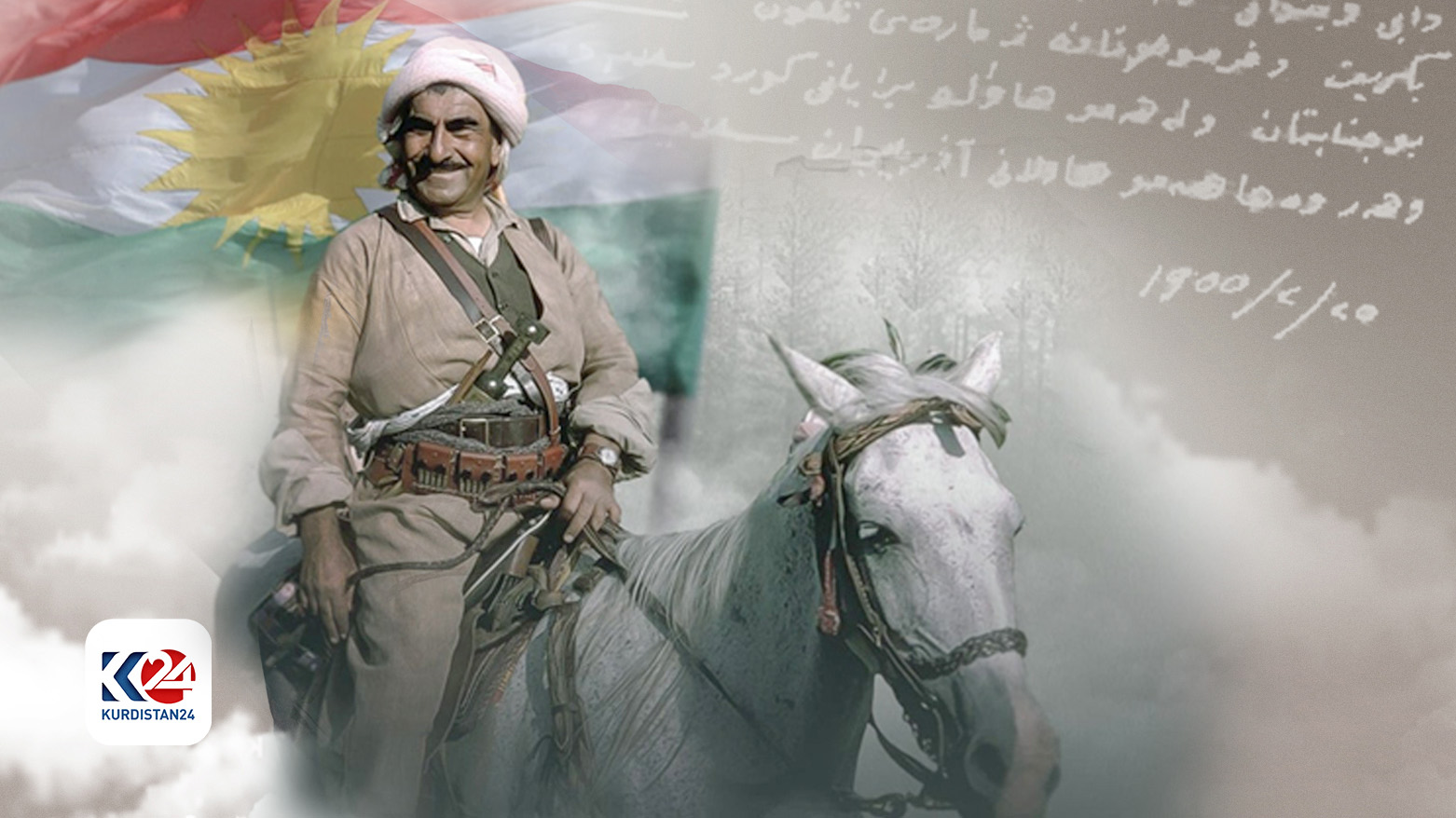October 6, Twice Remembered: Mustafa Barzani’s Role in Kurdish History
Mustafa Barzani’s return to Iraq in 1958 and his posthumous return in 1993 reignited the national spirit of the Kurdish people, solidifying his legacy as a symbol of Kurdish unity.

ERBIL (Kurdistan24) – On this day in history, the iconic Kurdish national leader Mustafa Barzani made two monumental returns to South Kurdistan, each carrying profound significance for the Kurdish people.
The first return occurred on October 6, 1958, after nearly 12 years of exile in the former Soviet Union. Barzani’s homecoming to Iraq and South Kurdistan was met with a jubilant reception from the people.
His return followed the victory of the July 14 revolution, led by Abdul Karim Qasim, which established a republican system in Iraq. Article 3 of the new constitution enshrined the brotherhood between Kurds and Arabs, and Qasim personally invited Barzani to assist in shaping the post-revolutionary future of Iraq.
Barzani’s arrival was celebrated across Iraq, with crowds welcoming him from Basra to Baghdad and into Kurdish regions. However, the unity between Barzani and Qasim was short-lived, as Arab nationalist factions within the regime sought to undermine the relationship.
Their efforts succeeded in alienating Qasim from Barzani, leading to a breakdown in trust. By 1961, Qasim had launched a military campaign against Kurdistan, triggering the September Revolution, a conflict that would continue until the March 11 Agreement of 1970.
Barzani spent his later years in exile, battling illness, and passed away on March 1, 1979. He was buried in Eastern Kurdistan.
The second return of Barzani came on October 6, 1993, when his remains, along with those of his son, Idris Barzani, were repatriated from East Kurdistan. This historic moment occurred after the 1991 Kurdish uprising, which saw large portions of Kurdistan liberated and the establishment of the Kurdistan Parliament and government.
The return of Barzani’s remains was a long-held wish of the Kurdish people, symbolizing the enduring legacy of their national leader.
The bodies of Mustafa Barzani and Idris Barzani were brought back to Kurdistan through the Bashmakh border, near the Penjwen district of Sulaimani province. A massive, heartfelt ceremony followed, with hundreds of thousands of citizens lining the roads from Sulaimani to Erbil, paying their respects.
The remains were laid to rest in Barzan, their ancestral homeland, after a final ceremony at the Kurdistan Parliament Hall.
Mustafa Barzani’s return to Iraq in 1958 represented a moment of peace and brotherhood between Kurds and Arabs, a fleeting but significant period of unity. His second return, posthumously in 1993, reignited the national spirit of the Kurdish people, uniting them once again and solidifying Barzani’s legacy as a symbol of resilience and Kurdish unity.